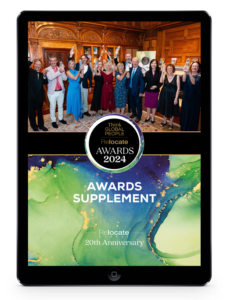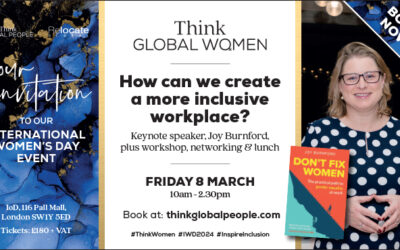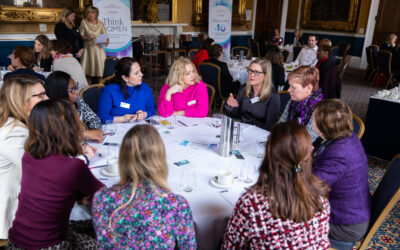Take five practical steps: International experience counts for women
Organisations often embrace diversity and inclusion but struggle turning policy into action. The delegates at our Inspiring Woman for Global Growth event used their collective expertise to come up with some ideas. Sue Shortland reports on their top five suggestions.
1. Value International experience
It is no secret that international experience often forms the bedrock for a senior leadership career, so it was no surprise the women at Inspiring Women for Global Growth all had an international background. For some, this came from working overseas and for others it was being a “third culture kid”, living, being educated, and growing up in a different country to their birthplace. Our participants all felt that their international experience provided the opportunity for professional and personal growth, as well as greater cultural understanding.
2. Role models, mentors and networks matter
Our delegates agreed role models, allies in leadership positions, mentors and support networks were vital in building confidence and resilience and gaining exposure in the global marketplace.
Employers can help by providing the time and resources for women in senior positions to act as mentors to others. Organisations often regard senior women expatriates as role models, but the women themselves often do not recognise this: research shows that they are more concerned about doing a good job and focusing on career advancement. If senior women are to support more junior females, they need to be recognised for their role-model status and mentoring others should be made part of their responsibilities.
Sponsoring can provide a formalised and accountable arrangement through which the sponsor holds responsibility for the career progress of a less experienced female. To ensure this happens, organisations can formalise sponsoring arrangements where senior females are appraised on their role in career support for more junior females.
Mentoring works best when the mentor and mentee self-select through shared interests and goals: not everybody wants to be a mentor and allocated pairings may not work effectively if the partners do not find mutual interest and support.
Research has shown that networks are particularly important to women and minorities, including the LGBT community, especially in international assignments. Minorities and women tend to have fewer support networks than males. Organisations can help by setting up networking groups and allocating time and resources for groups to meet. Care must be taken that groups set up to support minorities do not act as a disincentive for male networks to exclude women: an inclusive approach to networking that includes allies is important.
Action needs be taken earlier in a woman’s career to gain the international experience that organisations require of their senior leadership. Junior staff need to be nurtured and supported so there is a pool of suitably qualified female talent upon which to draw for board level positions later.
3. Buddy groups are invaluable
Women find it particularly valuable to speak to others who have already experienced an international assignment. Buddy groups, set up in pairs or wider circles, are valuable for problem solving. This might include finding schooling for special needs children, managing dual careers, and working out how to balance work with home life during international assignments.
Organisations can help by facilitating links between assignees and their spouses/partners who have already undertaken assignments or put them in touch with others about to set out on their international journey.
Minorities and others, including senior women and females wishing to gain senior positions tend to have fewer network contacts and support mechanisms than the male majority.
4. Understand diversity, equality, equity and inclusion
There is lots of discussion around diversity, equality, equity, and inclusion and it is worth clarifying these terms. Diversity means celebrating difference and capitalising from the differences that people can bring into the workplace. Organisations can have impressive diversity statistics without true inclusion: for this to happen individuals need to be listened to and their views acted upon.
Equality is underpinned by legislation – in the UK, we have the Equality Act 2010 which sets out the framework for equal opportunities at work. This should provide an equal chance for individuals of any minority group to compete on an equal footing in the workplace.
Equity is perceived fairness for all minorities to compete on a more equal footing. Inclusive processes and additional support might be required to ensure this works in practice. For example, an open and transparent selection process provides better opportunities for women to be offered international roles than a closed approach where people are simply recommended for an assignment. The latter favours the status quo, reflecting the white, male majority expatriate population.
Employers should also consider equal share in senior positions: to achieve this they may need to take positive action to ensure minorities can compete for these senior jobs. To clarify, this does not mean positive discrimination; instead, positive action might include inviting individuals to apply for a position when they may not have considered putting themselves forward. To help identify suitable candidates, organisations could maintain a database where individuals register their interest for international assignments. International mobility could also form part of regular performance discussions.
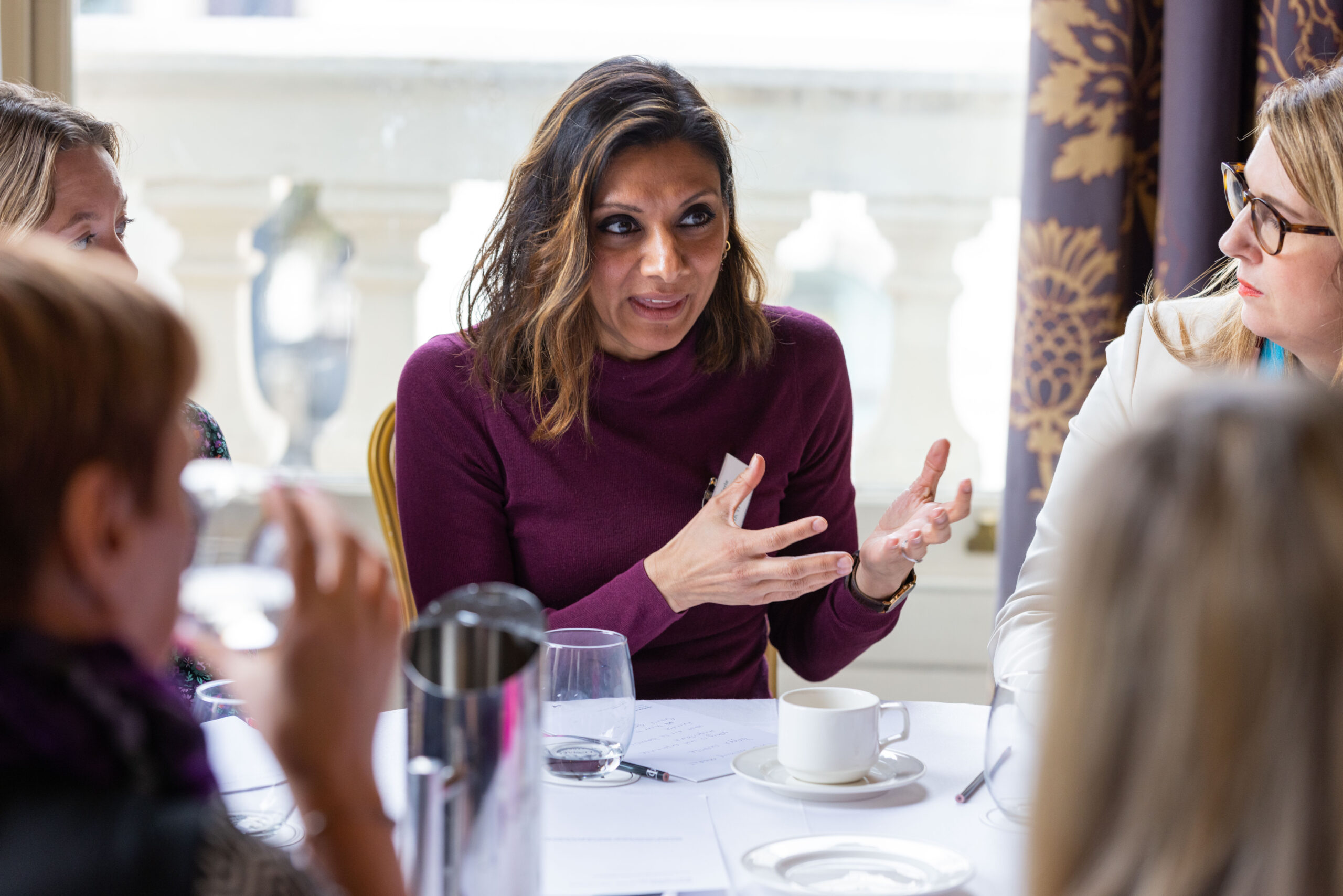
5. Be aware of intersectionality
Employers should look at their international assignee profile through the lens of intersectionality: women are not a single homogenous group but come from different cultures, backgrounds, and experiences. It is helpful for organisations to look beyond gender and consider how other aspects of potential disadvantage affect international career progress.
Research, for example, has shown that women of colour have different and less positive experiences than white women on assignment. LGBT women also experience international assignments differently from heterosexual women. To mitigate this, employers need to consider how they manage their subsidiary HR operations to ensure the local culture becomes more welcoming, inclusive, and accepting.
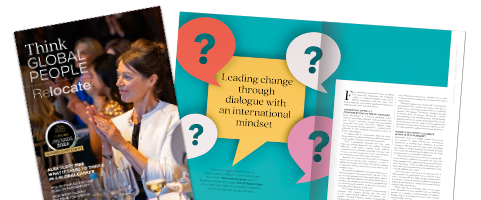

 Magazine
Magazine